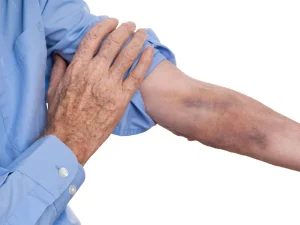
If you were active in your addiction for a period of time, you may have developed financial problems. A therapist can help you learn new coping skills, develop new thinking patterns, and address any co-occurring mental health conditions that may make recovery more difficult. You may https://ecosoberhouse.com/ also need to change your route to work or home in order to avoid any triggers, or people, places, or things that make you want to use drugs or drink again.

Find Your Sober Support System

If you recently had surgery or an injury, your doctor will be careful with the pain medication they give you, because some of those drugs can make you more likely to relapse. Ask your doctor about nonmedical ways to manage your pain, like massage or acupuncture. This may mean that you don’t spend time with someone you used to use drugs with or go somewhere you used to drink. You might take a new way home from work, for example, to keep from going past your favorite old hangout. Most importantly, seek out friends and family that will encourage your new endeavors. Surrounding yourself with positive people can make a huge difference in your outlook on recovery.

Seek support from friends and family
Furthermore, connecting with others who have experience in recovery can provide insights and coping strategies. Encouraging connections with professionals is also critical. Seeking help from therapists, counselors, or medical professionals can provide additional layers of support and guidance.
Importance of Admitting Addiction
Sobriety can be a fixed-term goal like staying sober for a set period (such as Dry January), or a lifelong goal of staying sober from all substances. Mindfulness has been shown to be an effective tool to support and manage alcohol and drug addiction. You can use what does stay sober mean mindfulness and meditation techniques to manage your emotions when feeling triggered. When trying to manage triggers and avoid drugs or alcohol, it will be helpful to develop healthy coping techniques.

It’s likely that you’ll experience some withdrawal symptoms, especially if you’ve developed a dependency on alcohol. It’s easier to stay comfortable; to self-preserve; to keep things the way they are. In long-term sobriety, you’ll likely have to navigate cravings, mental health struggles, and readjusting to day-to-day living. The good news is that it gets better with time, support, and dedication. Furthermore, a stable financial situation can enhance the quality of life and support healthy hobbies, education, or even career advancement.
- With this, we have hopefully provided a definitive answer to your question – What does sober mean?
- Mindfulness can help individuals recognize and cope with triggers, reduce stress, and enhance emotional regulation, all of which are vital in sustaining sobriety.
- Triggers for using drugs and alcohol typically are people, places, and things that remind you of your addictive behavior or encourage the use of substances you’re avoiding.
- To begin, it can take several hours to sober up from alcohol.
- Let’s dive into each and give tangible examples to set you up for success.
- And keep your schedule loose enough that you have time for group meetings and other things that can help you through rough stretches.
Some are structured in programs, such as the 12-step approach used by Alcoholics Anonymous and similar addiction recovery programs. There are common setbacks to getting and staying sober like withdrawal, craving, and pressure to use. Relapse rates for substance use addictions are around 40% to 60%. Setbacks don’t erase progress, though, and they don’t mean you’ve “failed” to stay sober.
Your sleep will improve, and you certainly won’t be waking up to any hangovers. If you’re in recovery, you’re actively taking what is alcoholism the steps to address a drinking problem. Everyone’s path along recovery is different, and what works for some may not work for others.
First, find ways to get help with bills and work at paying them off. Second, you need to apply the steps for getting out of debt to your financial circumstances. Third, you need to create a realistic budget and live within your means. Can you think of any areas where you are hard on yourself? Sometimes loving yourself can be as simple as taking a shower or brushing your teeth.
There is a correlation between poverty and substance abuse disorders and subsequent relapses. In addition, poverty increases stress, hopelessness, and low self-esteem. People in poverty also have decreased access to healthcare and social support systems. When weighing the heaviness of this reality on top of addiction recovery, it increases the chance of relapse.
